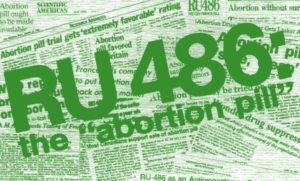 ABORTION drugs are set to be made easily available for less than $12 under new recommendations.
ABORTION drugs are set to be made easily available for less than $12 under new recommendations.
The Pharmaceutical Benefits Advisory Committee is widely expected today to agree that controversial drug RU486 should be subsidised by the Federal Government.
This would mean that within months, the price will drop from up to $800 to as little as $5.90 for concession card holders for each of the two drugs needed for a medical abortion – a total of just $11.80.
The cost will be up to $36.10 each for non-concession holders.
The “abortion pill” RU486 is used in conjunction with another drug, misoprostol, and is for women who are up to seven weeks pregnant.
Reproductive healthcare organisation Marie Stopes International has been pushing for RU486 to be taxpayer-funded.
The drug was approved for use by the Therapeutic Goods Administration last year.
They have previously warned that without cheap and easily available abortions, women can be traumatised and may not be able to afford treatment.
Various sources confirmed last night they expected the advisory committee to today recommend the drugs be made available on the Pharmaceutical Benefits Scheme and subsidised by taxpayers.
Reproductive Choice Australia president Dr Leslie Cannold said she was thrilled the proper process had been followed and that women would “be able to make the decisions that are best for them” without financial barriers.
“When an evidence-based approach is followed, you get the right outcome,” she said.
“This means that women will have a choice about which procedure they choose and they won’t be constrained by a financial consideration.”
Medical as opposed to surgical abortions, cost from $300 to $800 and are not available from many doctors.
The price and the difficulty of finding a prescribing doctor has made access difficult for many women, particularly the poor and those living outside cities.
Doctors need to do an extra training course to get prescribing rights – so doctors who are morally opposed to dispensing it would simply not take the course – and if the drug is more affordable it will become more widely available.
The pill causes a miscarriage within a day. It is successful in more than 95 per cent of cases but can have complications; the latest figures show more than 830 adverse events have been associated with its use and one Australian woman died from infection in 2010.
However, the World Health Organisation says it is less invasive and there is less chance of death and infection than with a surgical abortion, and they believe it should be available to all women.
Critics of RU486 say it will increase the number of abortions in Australia and have likened it to a “human pesticide”.
The Right to Life Association of SA president Michael Hall said making the drug more available would make abortions more common.
Right to Life Australia president Margaret Tighe wrote to the Greens last year calling the pill a “human pesticide”.
“This serves to illustrate that the present government wishes to further entrench the practice of the killing of unborn children by not only continuing the scandalous funding through Medicare of surgical abortions, but to ensure that the practice of abortion increases by the seemingly easy use of RU486,” she said.
NSW Greens Senator Lee Rhiannon, a firm advocate, said a listing was “long overdue” and called on Health Minister Tanya Plibersek to hurry and get the drug over the last hurdle by accepting the recommendations.
“For almost two decades, roadblocks have been thrown in the way of giving Australian women the same access to affordable medical abortion as others have in around 50 nations around the world,” she said.
Australian Christian Lobby spokesman Lyle Shelton questioned the drug’s effects on women and said it was “a chemical designed to kill human embryos … it should not be encouraged, let alone subsidised by the taxpayer”.
Today he added: ”Obviously we are against abortion and the destruction of human life at all of its stages,” saying that was an ethical issue in itself.
If the PBAC recommends it should become taxpayer-funded, it will almost certainly be accepted by Ms Plibersek.
She has said in the past that RU486 meets safety, quality and efficacy standards and that she was “pleased that Marie Stopes is working to make this medicine, which is on the World Health Organisation list of essential medicines, more widely available to Australian women”.
RU486 hit the headlines in 2006 when Parliament voted to strip then-Health Minister Tony Abbott of his power of veto on the drug. Then, in 2009, a Queensland woman was charged with procuring her own abortion after she got RU486 from overseas relatives.
Earlier this year, The Advertiser revealed that women were buying RU486 online and having abortions at home because they could not afford to see a doctor or buy the pill through official channels.



